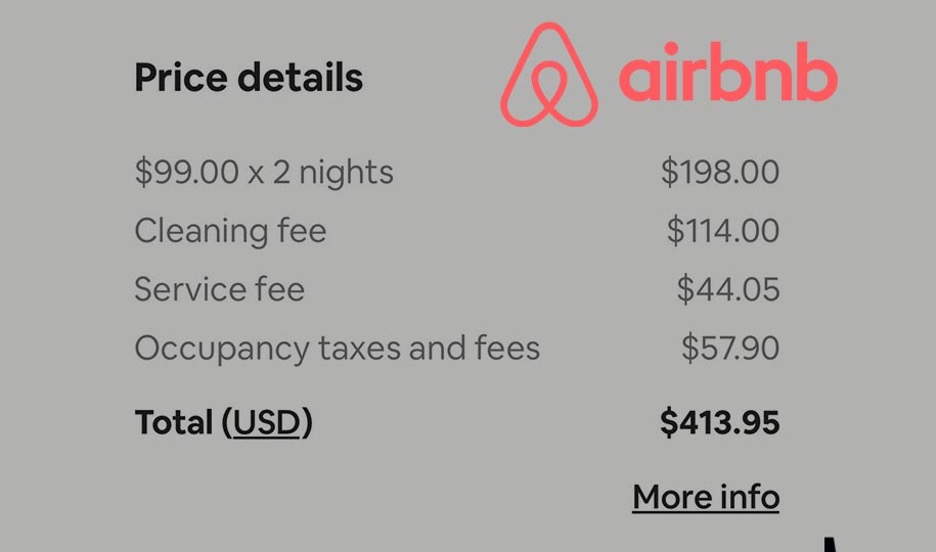Unexpected competition is emerging in the vacation home rental business.

Airbnb hosts might build their business off the platform, but more than a few are now wooing repeat customers away from the vacation rental platform entirely, according to a recent report.
Professional rental companies often designated as Superhosts—a term Airbnb uses to denote top-performing rental owners—are cutting out Airbnb by instead having renters book directly with them or via their own listing platform at more affordable rates.
For example, one of those companies, Heirloom, lists luxury vacation rentals on Airbnb but also lets guests book via its own website. A two-night stay at one of Heirloom’s Nashville listings is $125 less per night than what it lists for on Airbnb, according to the report.
That presents a fresh challenge to Airbnb, which has been recently dogged by complaints over soaring cleaning and other service fees that can make using the platform less appealing than booking a hotel.
However, cutting out Airbnb entirely by booking directly with a host makes things more affordable for travelers. The Heirloom direct listing in Nashville charges half the service fee that is levied when the same property is booked through Airbnb.
There has always been some degree of this practice in the Airbnb world, with hosts sometimes working directly with renters instead of having them book off the website and incur the various service charges.
It worked both ways—renters not only paid less, but hosts made more by not having to give Airbnb a cut. Airbnb tried to block the practice under various security measures like blurring out phone numbers and emails when hosts and guests would message one another on the platform.
While Airbnb hasn’t explicitly said hosts going off book with reservations is a widespread practice and a financial burden on the company, the company’s most recent annual filing with the U.S. Securities and Exchange Commission notes the following:
Some of our Hosts have chosen to cross-list their properties, which reduces the availability of such properties on our platform. When properties are cross-listed, the price paid by guests on our platform may be or may appear to be less competitive for a number of reasons, including differences in fee structure and policies, which may cause guests to book through other services, which could materially adversely affect our business, results of operations, and financial condition. Certain property managers reach out to our Hosts and guests to incentivize them to list or book directly with them and bypass our platform, and certain Hosts may encourage transactions outside of our platform, which reduces the use of our platform and services.
The workaround has apparently become reasonably successful in the Superhost community. While professional property managers only account for 1% of all Airbnb and Vrbo hosts, according to vacation rental data platform AirDNA, they manage 23% of available listings and generate 28% of total revenue. If travelers start migrating to more affordable listings for the same property offered up on a different site, that could put a huge dent in Airbnb and Vrbo earnings.
(Airbnb’s stock price tumbled by as much as six percent following the release of the report, which also outlined the various complaints guests have about staying at Airbnb rentals, including hidden cameras in bathrooms, surprise cleaning requirements, and last-minute host cancellations.)
How to use this situation to your advantage? As Smokey Robinson and the Miracles once sang, “you better shop around.”
Case in point: a four-bedroom house in Provincetown, Massachusetts was available October 15-21 at various rates, depending on the platform. While Vacasa had the listing at $899 a night, Rent by Owner had it at $904 per night. It went for $1,074 per night on Airbnb, while Marriott’s Homes & Villas commanded the highest rate at $1,249.23 per night.
Twist’s Take: When booking a vacation rental, checking the property’s rates on various sites can result in big savings.

